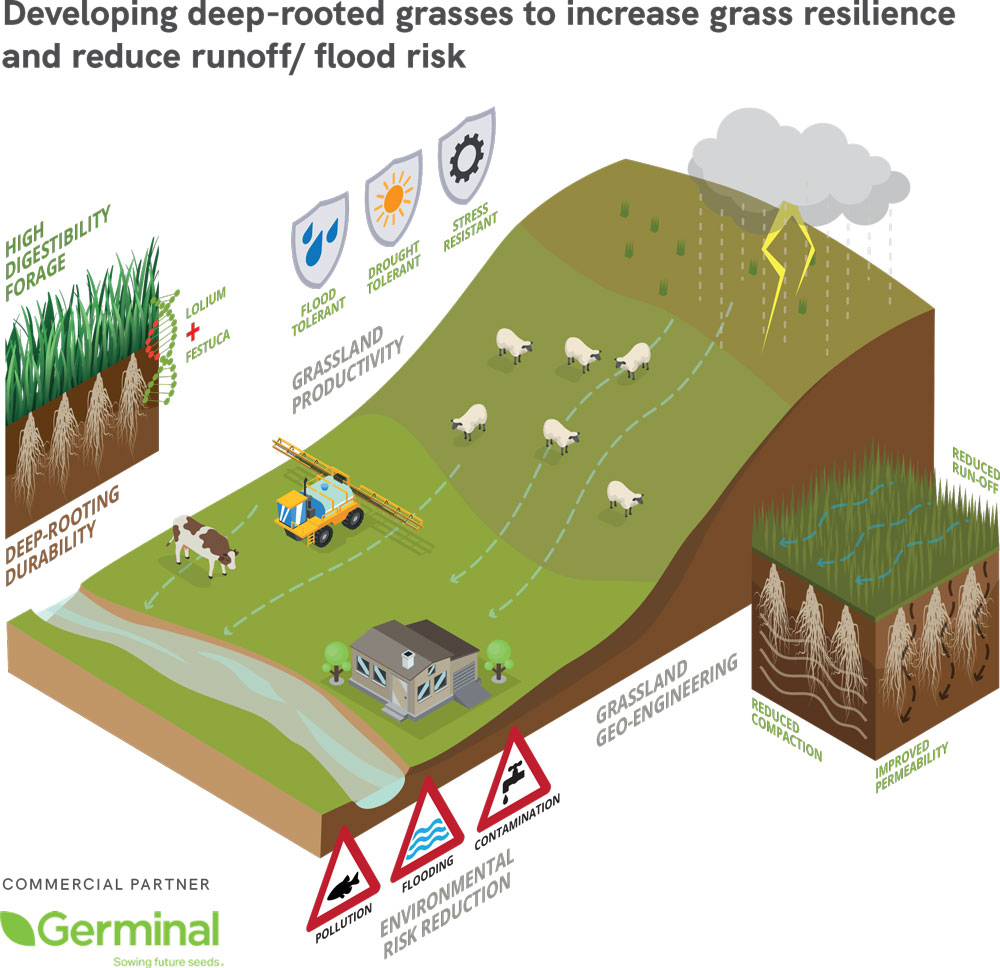Deep-Rooted Grasses Impact Case Story
Deep-rooted Grasses

Deep-rooted Grasses: Building Resilience Below the Surface
As the climate changes, UK grasslands are facing increasing pressure from both drought and flooding. These extreme weather events don’t just affect productivity—they threaten the long-term sustainability of forage-based livestock systems.
At IBERS, scientists have tackled this challenge by looking at the root systems of a wide range of grass species. They’ve identified key traits that promote resilience—and then bred those traits into high-performing forage grasses suitable for UK farms.
The root of the problem—and the solution
Some species of Festuca from North Africa naturally produce deep and fast-growing roots, which allow them to access water during drought and survive in poor soils. However, these species are not ideal for livestock—they're low in digestibility and nutritional value.
The IBERS team addressed this by using chromosome painting techniques and crossbreeding with Festuca species to combine the best of both worlds:
- The resilience and rooting depth of wild Festuca species
- The digestibility and yield of perennial ryegrass (Lolium perenne) and Italian ryegrass (Lolium multiflorum)
After several generations of careful crossing and selection, they developed new Festulolium varieties that contain a small, beneficial chromosome segment from Festuca.
The outcome: More resilient forage for the future
This approach has produced two new varieties:
- AberNiche – an Italian ryegrass
- AberRoot – a perennial ryegrass
These deep-rooting varieties provide:
- Improved drought and flood tolerance
- Stronger root systems that reduce soil compaction
- Better soil structure and porosity
- Lower water and nutrient runoff, helping to reduce flooding and protect watercourses
These grasses do more than just grow—they engineer the soil itself. By combining productivity with resilience, AberNiche and AberRoot offer farmers a practical tool for adapting to climate change while delivering environmental benefits at scale.
Achieving an increase in agricultural productivity with reduced environmental and societal risks has led to agricultural innovation with impact—smarter roots for a smarter future.
Downloads
Download our full IBERS Impact Case Stories Booklet here: Innovations for a Changing World Case Story Booklet
